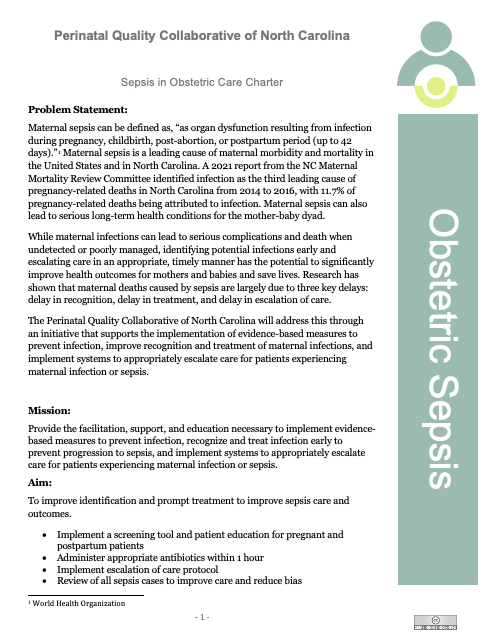Obstetric sepsis can be defined as, “as organ dysfunction resulting from infection during pregnancy, childbirth, post-abortion, or postpartum period (up to 42 days).” Obstetric sepsis is a leading cause of maternal morbidity and mortality in the United States and in North Carolina. A 2021 report from the NC Maternal Mortality Review Committee identified infection as the third leading cause of pregnancy-related deaths in North Carolina from 2014 to 2016, with 11.7% of pregnancy-related deaths being attributed to infection. Maternal sepsis can also lead to serious long-term health conditions for the mother-baby dyad.
While maternal infections can lead to serious complications and death when undetected or poorly managed, identifying potential infections early and escalating care in an appropriate, timely manner has the potential to significantly improve health outcomes for mothers and babies and save lives. Research has shown that maternal deaths caused by sepsis are largely due to three key delays: delay in recognition, delay in treatment, and delay in escalation of care.
The Perinatal Quality Collaborative of North Carolina will address this through an initiative that supports the implementation of evidence-based measures to prevent infection, improve recognition and treatment of maternal infections, and implement systems to appropriately escalate care for patients experiencing maternal infection or sepsis.

